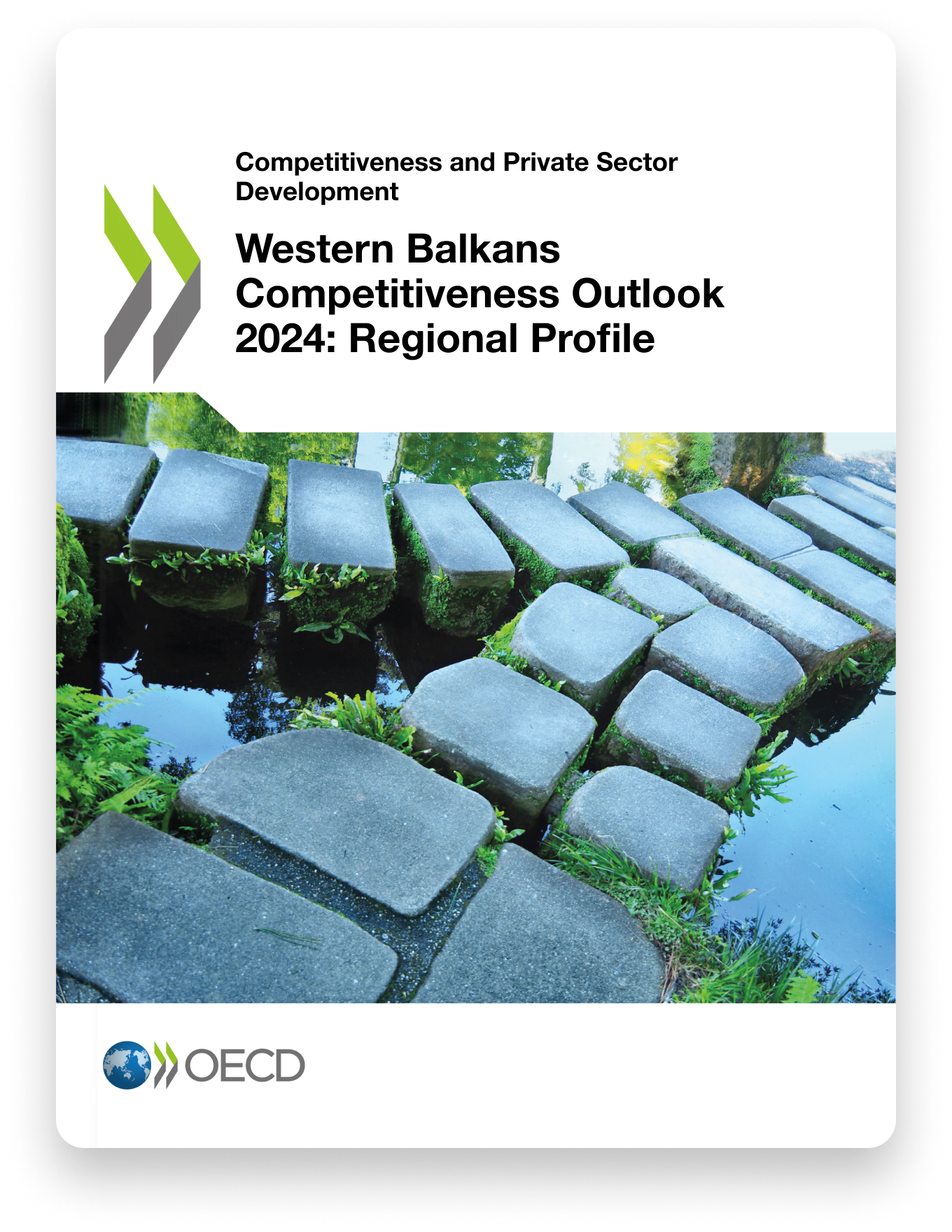Western Balkans Competitiveness Outlook: A tool for monitoring progress in building competitive economies
Funded by the European Union, the flagship regional publication series, the Western Balkans Competitiveness Outlook, is the most comprehensive assessment of economic reforms in the six Western Balkan economies: Albania, Bosnia and Herzegovina, Kosovo*, Montenegro, North Macedonia and Serbia. Since 2016 it has provided the region’s policy makers with a unique benchmarking tool, enabling them to compare economic policy performance over time and to design future policies based on robust evidence and actionable policy recommendations from OECD standards and good practices.
The Competitiveness Outlook employs a participatory assessment method (see the Methodology section for more detailed information) aimed at fostering peer learning, consensus building on reform priorities and stakeholder co-ordination. This inclusive approach is reflected in the diverse stakeholders involved in assessment activities and contributes to robust data collection and facilitates constructive exchanges on concrete policy issues among stakeholders and with the OECD.
Western Balkans Competitiveness Outlook 2024
The fourth edition of the Western Balkans Competitiveness Outlook 2024 covers 15 policy areas and introduces a novel approach that harnesses complementarities between these areas by organising findings into five policy clusters: 1) Infrastructure and connectivity; 2) Skills; 3) Business environment; 4) Digital Transformation; and 5) Greening.
Assessment results are presented in distinct profiles for each Western Balkan economy that provide an economy-specific analysis of the 15 policy areas, providing actionable recommendations within each area for enhanced competitiveness. The regional profile offers insights into policy progress and challenges across the five clusters, monitoring the region’s convergence towards OECD and EU standards.
These reports complement the Data Hub, which was prepared for the first time for this fourth edition and is designed to showcase the progress of individual economies and the region over time, enhancing the visualisation, accessibility and dissemination of the assessment results. Over time, the Data Hub is expected to integrate findings and results from other key OECD work streams to provide a comprehensive view of the region’s policy landscape in support of competitiveness.



